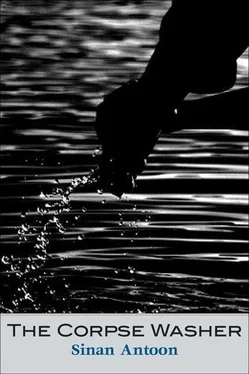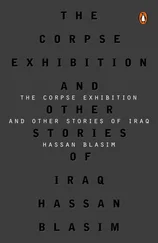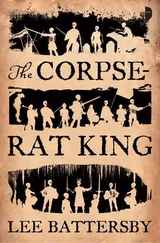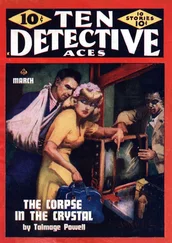“I’m a taxi driver trying to make a living. I live in al-Sayyidiyya and I picked up this poor man—” he made a gesture with his hands that added to the sadness in his voice. “He seemed like a good and honest man. We started yapping about this miserable situation we are in and about the massacres and politics of it all. The whole thing about Shiites and Sunnis came up and he said he was a Shiite. We argued a bit, but we were in agreement and were consoling each other. I had to take a leak and I asked to stop for a minute. I parked the car on the side next to the trees on al-Qanat Highway. There were choppers hovering overhead that day. Something had happened in al-Sadr City between the Americans and the Mahdi Army.
“I’d just unzipped my pants when I heard a huge explosion. It was so strong I thought my eardrum had burst. I looked back and saw that my car had become a ball of fire. I ran back and saw an American Apache up in the air whirling and heading back toward my car. I didn’t know what to do and was afraid it would fire at me too. There was no fire extinguisher, so I started to grab dirt and throw it at the car. I ran and stood in the middle of the street, waving to cars with both hands. I wanted someone to stop and help me, but no one did. I was screaming at the top of my voice ‘Please help! People … Please.”’ I thought I should try to open the door to get him before the car exploded. I took off my shirt and wrapped it around my hand. I opened the door. The fire flew at me, burning my head, my forehead, my cheek.” He pointed to his cheek. “I don’t know how I managed to pull him out. He was in flames. I dragged him away and kept trying to put out the fire with my shirt and with dirt. He was already charred and I could smell his burned flesh and hair.
“The car exploded and parts of it scattered everywhere. I don’t remember how long I sat there dazed. I started to walk and wave to cars, but no one stopped. They must’ve thought that I was crazy, because I was half-naked. I walked for a whole hour before some guy stopped and drove me home. God bless him. My neighbor took me to the hospital to treat my burns. I reported the incident, but no one explained why the Americans had fired at the car. They told me to file a petition for compensation and I did, but it’s all talk. Nothing came out of it. The face of that man who was charred kept haunting me.
“I called the police and told them a man’s corpse was out there on the street, that they had to pick it up before dogs ate it. They said, ‘We can’t do it. We don’t have enough personnel.’ Can you believe it? But I should’ve known. If we, the living, are worthless, then what are the dead worth? So I went with my brother — he’s the one who drove me here today — to see whether there was anything left of the car or whether they’d picked him up. But he was still lying out there. I just couldn’t stand it, so we put him in the trunk and took him to the morgue. They have piles there in their fridges and no one knows where their families are, and they are running out of space. They take their pictures, I’m sure you know about it, and save them on the computer and wait for someone to come by and recognize them so they can be taken away and buried.
“This man was in the morgue for two months and no one asked about him. Isn’t it a sin not to bury him? I told them I would take him and see that he was buried and pay for the whole thing. I signed the papers. I can’t take him all the way to Najaf. It’s way too dangerous, but they said there was a new cemetery for the unknown that I could take him to. So we brought him here to you.”
I took a deep breath and said “God bless you. There are still good people in this world.” I said goodbye to him.
In the evening I told his story to Um Ghayda’ and my mother in the hopes of changing their opinions and judgments about “them,” the Sunnis.
It was useless.
My eyes began to meet Ghayda’s quite often. Only her brother noticed the dialogue of our eyes when others were around, and he never said a word.
I fulfilled my promise and chose a few novels to lend her. When I gave her the books, our hands touched, and I felt a surge of blood in my veins. She had started to help my mother with the housecleaning. I noticed that the desk in my room, which was usually covered with old newspapers, papers, and books, was neat and nice. So she was going into my room. She asked me once about my painting, and when I asked how she’d known, she mentioned seeing a painting in my room which bore my signature. It was a variation on Giacometti and depicted a naked, wire-thin woman walking toward a white horizon.
I told her that that was a long time ago and was the heedlessness of youth. She laughed and said that the heedlessness of youth was quite beautiful. She asked why I stopped painting. That, I said, was a long story for another day.
I found myself sketching her face and body in my notebook of the dead to distract myself. It was a way of running away from death, running toward her. Then I felt guilty for imprisoning her body with the names of the dead, so I set aside a new notebook for her alone and started taking it with me to work every day. From memory, I sketched her painting her toenails. I had happened to see her doing that through the guest room door. Her legs were crossed and her right leg was exposed all the way above her knee, revealing her smooth thigh. We looked into each other’s eyes and she smiled without moving or changing her position.
We had three or four more nocturnal encounters. While the house was asleep, we traded stories and worries. Some of her questions were gutsy. One night she asked me about my relationships, so I told her all about Reem. She was moved by the story’s sad end, and I thought I sensed a bit of jealousy as well. So I asked her about relationships.
She laughed and said: “I’m a good girl and don’t have relationships.” She added that she hadn’t had the chance, because she was kept from college and had had only teenage relationships—“nothing but chatter.”
I was taken by her intelligence and her maturity. She also gave me hope, because despite what her family had suffered in the civil war and sectarian clashes, she hadn’t been swept into blaming the Sunnis for everything and jumping over history as our mothers often did. She would side with me when I argued with them. She even stood against her mother when Um Ghayda’ said that Shiites hadn’t ruled for fourteen hundred years, and that Saddam’s regime had been Sunni. Ghayda’ reminded her that the Americans had made a deck of cards with pictures of the most-wanted officials from the previous regime, and that the number of Shiites in the deck was larger than the number of Sunnis.
Um Ghayda’ often repeated that the Sunnis cannot stand Shiites being in power and have always wanted to slaughter them. I reminded her of the Sunnis who jumped into the river to save the Shiites who were drowning the day of the A’imma bridge accident. Or Shiite militias which torched Sunni mosques. Or the stories of the secret prisons where Sunni prisoners were tortured with electric drills. I harped on all the Ba’thists who were Shiites, Kurds, and Christians, and ended with my favorite example of the corrupt ex-minister of information, al-Sahhaf, and asked her: “Wasn’t he a Shiite?”
She raised her eyebrows and said: “Oh my. Are you with us or with them?”
“Don’t you know he’s the defense lawyer for Sunnis?” my mother told her.
“I’m all by myself. Neither with you nor with them,” I said. I kept silent after that time and tried to avoid such useless arguments.
My uncle asked me in an e-mail for news about sectarian clashes. I said that I felt as if we had been struck with an earthquake which had changed everything. For decades to come, we would be groping our way around in the rubble it left behind. In the past there were streams between Sunnis and Shiites, or this group and that, which could be easily crossed and were even invisible at times. Now, after the earthquake, the earth had all these fissures, and the streams had become rivers. The rivers became torrents filled with blood, and whoever tried to cross, drowned. The images of those on the other side of the river had been inflated and disfigured. And out of these rivers came creatures which were extinct, or so we had thought. Old myths returned to cover the sun with their darkness and to crush it into pieces. Now each sect or group had a sun, moon, and world of its own. Concrete walls rose to seal the tragedy.
Читать дальше












